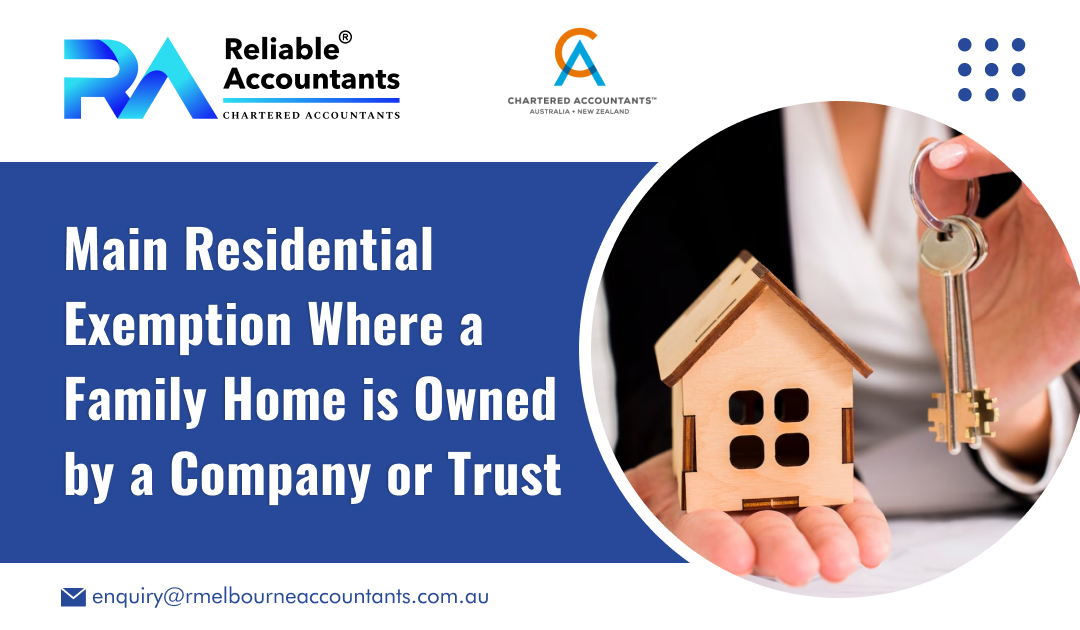In today’s blog, we’ll find out how the main residential exemption usually applies to individual property owners. But what happens when a family home is owned by a company or trust? Let’s find out.
Overview of Main Residence Exemption
The main residence exemption is a significant tax benefit that allows individual property owners to avoid paying capital gains tax when they sell their main residence. Typically, this exemption applies to properties owned by individuals as per section 118 to 110 of the Income Tax Assessment Act 1997.
Family Home Owned by a Trust or Company
However, there are scenarios where a family home is owned by a company or trust. In such cases, the main residence exemption generally does not apply. When the dwelling is held by a company or trust, the main residence exemption does not apply as these entities are not considered individuals for tax purposes.
Limited Exceptions
Nevertheless, there are some limited exceptions to this rule. Let’s explore them:
- One exception is when a special disability trust owns the property. In such cases, there may be opportunities for the main residence exemption to be applied.
- Another exception is when the property was held by an individual just before their passing and is now held in a deceased estate or testamentary trust, in these particular circumstances, some additional regulations may be able to make the main residence exemption applicable.
- Lastly, the main residence exemption may still apply if the property occupier is absolutely liable to the property as against the trustee to recap the main residential exemption is typically applicable to individual property owners. However, in some limited cases, properties held in a special disability trust or deceased estate can still be eligible for the exemption.
Eligibility for Main Residence Exemption
Your main home or residence is exempt from capital gains tax if you are a resident of Australia and the dwelling:
- has been the home of you, your spouse and other dependents for the entire time period you have held it
- hasn’t been put to use to generate income, which means you haven’t used it for a business, rented it out, or ‘flipped’ it (purchased to remodel and sell at a profit)
- is on land of two hectares or less.
If you meet these requirements, you are exempt from paying taxes on capital gains and losses when you sell your house. Even if you don’t fulfil all of these requirements, you can be eligible for a partial exemption. Using the CGT property exemption tool, you can be able to check the percentage that is exempt.
Conclusion
Now, you know what requirements you need to meet to be eligible for the main residence exemption. There are some limited exceptions for a company or trust that owns a family home. Always consult a qualified tax professional for personalised advice on your specific situation. You can also seek advice from Reliable Melbourne Accountants.
Other Useful Link:-
Subscribe our YouTube channel for more updates:

